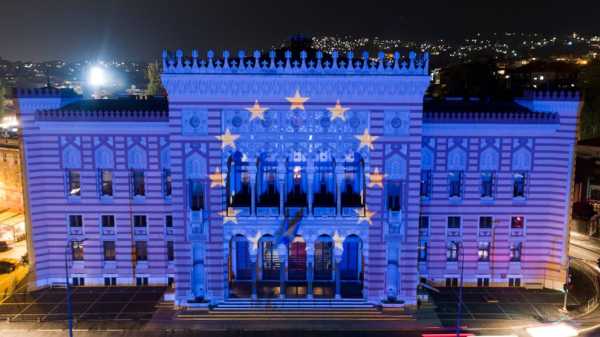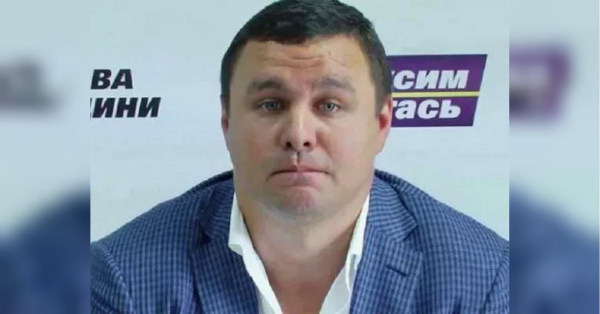
BRUSSELS — European affairs ministers from the 27 EU nations agreed Tuesday to endorse a recommendation from the bloc's executive arm to grant Bosnia candidate member status as the war in Ukraine accelerates the bloc's enlargement process.
Despite continuing criticism of the way the Balkan nation is run, Bosnia made a significant step toward the wealthy club after getting unanimous support from the ministers gathered in Brussels.
They approved Bosnia's bid just a week after EU leaders gave more concrete signs to six Western Balkan countries aspiring to join the EU that they have a future place in the bloc. Tuesday's decision needs to be formally approved by the leaders, who have a summit in Brussels set for Thursday.
“The EU enlargement represents the most effective process to ensure a stable and secure Europe," Czech minister Jan Lipavsky, whose country holds the European Council's rotating presidency, said.
At a summit in Albania, the EU “reconfirmed its full and unequivocal commitment to the European Union membership perspective of the Western Balkans” and called for the acceleration of accession talks with the membership hopefuls.
Expansion of the EU had stalled in recent years. But since Russia attacked Ukraine in late February, EU officials have emphasized that stepping up the bloc’s engagement with Western Balkans nations was more crucial than ever to maintaining Europe’s security.
The EU also agreed in June to make Moldova and Ukraine candidates for membership and said Georgia would be eligible for candidacy once the country met goals defined by the European Commission, the bloc's executive arm.
The European Commission recommended granting Bosnia candidate member status in October, more than six years after the country formally applied to join and nearly three decades since it emerged from a 1992-95 interethnic war that left more than 100,000 people dead.
Once a country becomes a candidate, it still can take years before admission to the club takes place. The EU last admitted a new member, the Balkan nation of Croatia, in 2013. The path toward membership is a lengthy process, as countries must meet a detailed host of economic and political conditions.
EU Enlargement Commissioner Oliver Varhelyi said in October that Bosnia needs reforms on issues that include the judiciary, battling corruption, and constitutional and electoral changes. Little progress on those issues has been made in recent years.
Bisera Turkovic, Bosnia's foreign minister, said becoming an EU candidate will help the country access new funds and investments.
“Economically, investors from around the world will see in Bosnia… a clear positive side and chance for progress,” she said.
While Bosnia expressed a desire to join the EU starting in 2003, the country's ethnic leaders have so far proven unwilling to put aside their differences and implement necessary reforms. The staunchly pro-Russian Bosnian Serb leader, Milorad Dodik, has increasingly threatened to separate Bosnia’s Serb-run part from the rest of the country.
Meanwhile, Kosovo's government said Tuesday it would apply for candidate status this week amid a long-lasting dispute with neighboring Serbia.
“It is time that the potential candidate status turns into an official one, thus passing on to a new stage of relations with the EU,” Prime Minister Albin Kurti said during a Cabinet meeting.
Kosovo is the latest country in Western Balkans to take that step. Serbia, Montenegro, Albania and North Macedonia are in membership negotiations with the bloc.
However, the EU has repeatedly warned Serbia and Kosovo they must normalize relations to be eligible for membership in the bloc. Kosovo declared independence from Serbia in 2008, and the government does not recognize its former province's statehood.
A sizable ethnic Serb minority lives in northern Kosovo, where tensions have been high in recent days. Serbia fought a brutal 1998-99 war with ethnic Albanian separatists in Kosovo.
———
Amer Cohadzic in Sarajevo, Bosnia, and Llazar Semini in Tirana, Albania, contributed to this report.
Sourse: abcnews.go.com






